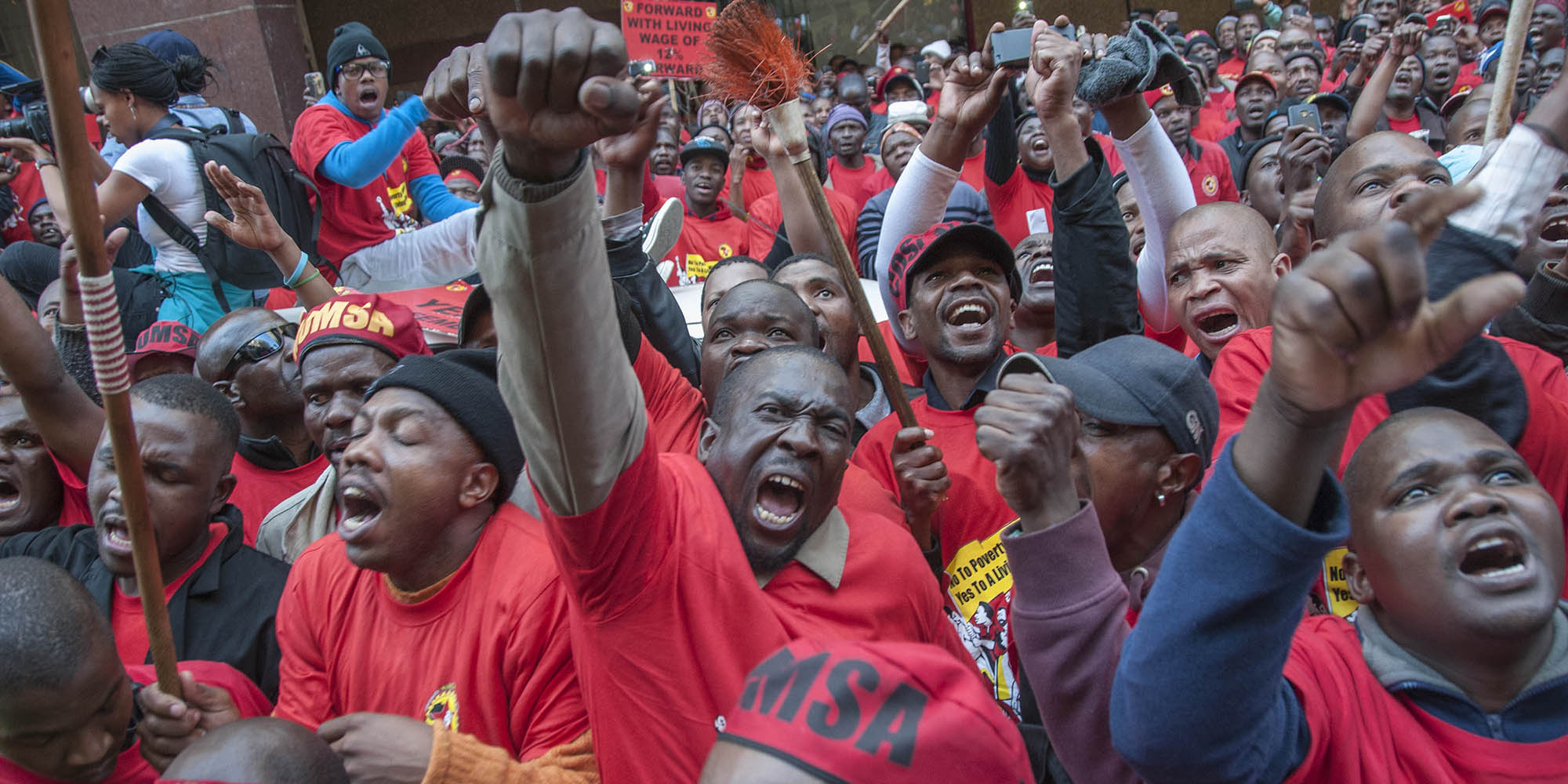A general strike in the public sector, which could have shut down state hospitals, schools, and police stations, has been averted but possible industrial action might be in the offing in SA’s engineering and steel industry.
A strike in the engineering and steel industry, which contributes about 10% to SA’s overall economic activity, could further harm an economy that is still reeling from Covid-19 related lockdowns and the recent week of anarchy.
In the public sector, salary negotiations were concluded in July after a majority of trade unions that represent 1.3 million public servants accepted the government’s offer of a 1.5% salary increase for 2021.
The National Union of Metalworkers of SA (Numsa), which claims to have more than 339,000 members, has trashed the government’s offer for public servants, calling it an “insult” because public sector unions were pushing for an increase of at least 8%.
Numsa is also seeing red in the engineering and steel industry as the union has threatened to go on a “mother of all strikes” for higher pay. Numsa has demanded a salary increase of 8% for workers in the engineering and steel industry for one year (2021), then an adjustment of consumer inflation plus 2% for the following two years. This works out to salary increases of just over 6% because the SA Reserve Bank expects inflation to average 4.2% and 4.5% in 2022 and 2023 respectively.
In a media statement, Irvin Jim, the Numsa general secretary, said workers were willing to not accept salary increases in 2020 when Covid-19 burrowed its way into SA, forcing the economy to shut down and the profitability of engineering and steel companies to be impacted.
“We allowed employers, at the back of the sweat and toil of our members, not to give increases, and to strengthen their balance sheets and recover what was lost in a year both in our country and the world…Many businesses have [now] broken even and some have made profits. We made such compromises being very clear that such preservation of companies should translate to job security,” said Jim.
But employers in the engineering and steel industry are not entertaining Numsa’s salary adjustment demands as they have tabled a 4.4% increase for 2021, an inflation plus 0.5% increase in 2022, and inflation plus 1% increase in 2023. Using the Reserve Bank’s inflation forecast, the offer of employers works out to salary increases of about 4.7% in 2022 and 5.5% in 2023.
The employers are represented by industry bodies including the Steel and Engineering Industries Federation of SA (Seifsa), the South African Engineers’ and Founders’ Association, and others.
Numsa has rejected the offer by the employers and declared a dispute on Thursday 29 July at the Metals and Engineering Industries Bargaining Council, where conditions of employment in the industry are discussed. Numsa wants the employers to reconsider their salary adjustment offer, failing that, the union will “serve employers with a 48-hour notice for an indefinite national strike.”
The union has implored other workers in the automotive industry, component supplies, tyre sector, mining, aviation, and all ports to join the possible strike in solidarity. This would be a disaster for the economy, which suffered a R50-billion hit in its output due to the recent street violence and looting that also blocked key supply chains in the broader manufacturing industry from operating.
Employer responds
On Monday 2 August, Seifsa, a body that represents organisations that employ about 190,000 workers in the engineering and steel industry, declared a counter dispute against Numsa at the bargaining council over the union’s refusal to accept the offer by employers. The counter dispute will ensure that employers have the right to implement a lockout of workers if they were to go on a strike. In other words, workers represented by Numsa could be excluded from their workplaces until the dispute is resolved.
Seifsa CEO Lucio Trentini said the bargaining council has scheduled a special meeting on Tuesday 10 August between “all the negotiating parties in order to decide on how best to progress the deadlock.” DM/BM
Business Maverick
Numsa throws a strike threat for SA’s broken economy





